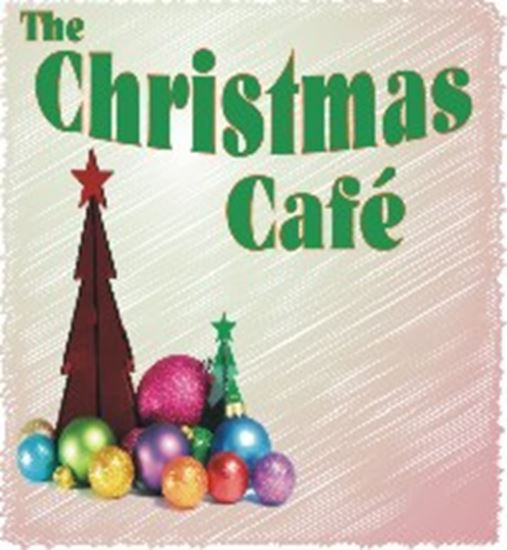
The Christmas Cafe
"The Christmas Café" is set in a restaurant where Betty, the waitress and cook, serves customers from three different familiar holiday stories: "The Night Before Christmas" by Clemet Clarke Moore, "A Christmas Carol" by Charles Dickens, and "The Nutcracker" by E.T.A. Hoffman. In "All of the Other Reindeer," Blitzen is burned out and upset that he's always last on the team. The other reindeer have suggestions: Cupid thinks he needs a love life; Donder suggests a good stock portfolio, Prancer thinks an exercise regime is the answer. Baffled, the other reindeer call in Santa's newest hire, a reindeer called Freud. They tell her Blitzen has jealousy and anger issues. Finally, the waitress Betty simply suggests another reindeer take a turn being last. Finally Blitzen has a better outlook. In "Bah! Humbug!" Marley's Ghost goes to Scrooge's house, but a century and a half too late! The Spirits of Past, Present and Future confront him, but everything's messed up. Now Tiny Tim is a football player. In "Nutcrackered," E.T.A Hoffman is struggling with writer's block. Young Clara and her brother Fritz give him inspiration when they tell him a wild story about a magical nutcracker. The play may be performed on a bare stage with café tables and chairs. The genders of some of the characters may be altered to fit the director's needs.
Productions
Behind The Scenes
PLAYWRIGHT BURTON BUMGARNER
TALKS ABOUT "CHRISTMAS CAFÉ"
Q: What inspired you to write this play?
A: I wanted to have some fun with some of our holiday traditions. I selected the familiar poem "The Night Before Christmas" by Clemet Clarke Moore, "Christmas Carol" and "Nutcracker" by E.T.A. Hoffman. In thinking about these familiar tales, one wonders: Do the reindeer ever suffer from work related stress and burn out? What if Marley's Ghost and the three Christmas Spirits visited Scrooge's house in the wrong century? Before "Nutcracker" was a ballet it was a children's short story. What if its writer suffered from writer's block? What if Clara and Fritz showed up and provided needed inspiration? What if Uncle Drosselmeier was really a klutz?
Q: What's your favorite part or line in the play? Why?
A: I love Blitzen's anxiety dream: "I'm in the barn and the trough is full of reindeer food. Only I'm trying to move toward it, and the harder I try and get to dinner, the faster dinner moves away. I never get my food. And all of the other reindeer are laughing and calling me names. And they won't let me join in any reindeer games, either. Then one foggy Christmas Eve, Santa shows up and tells me if I can make my nose light up, I can be the leader. Only my nose won't light up, so I'm right back where I started, only I'm hungry. Then I wake up." The entire play is funny, but that one really cracks me up. Maybe it's because I have so many anxiety dreams myself.
Q: Where did the characters come from? Are they based on people you know?
A: The characters are slightly (or not so slightly) altered creations of other writers. They're part of our holiday heritage and legacy. They are so familiar they are clichés. The exception is Freud, who was the father of modern psychoanalysis. In this play he's a she, and she's a reindeer.
Q: What did you try to achieve with this play?
A: Holiday cheer.
Q: Do you have anything else you'd like to add?
A: I want actors and audiences to have a great time.
